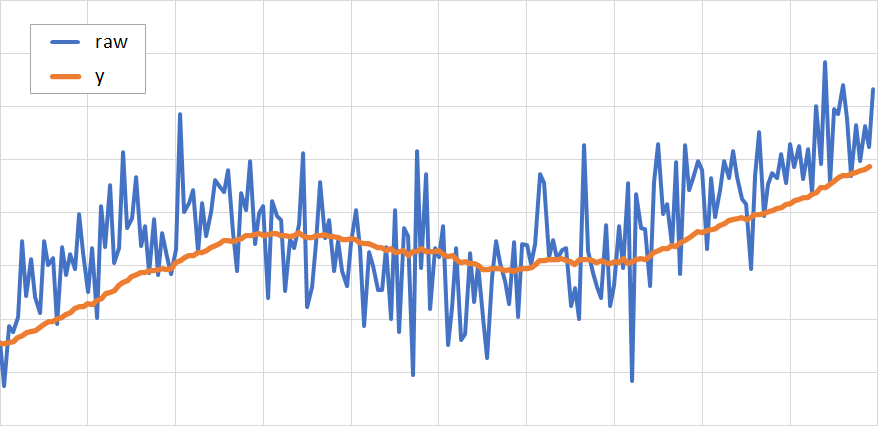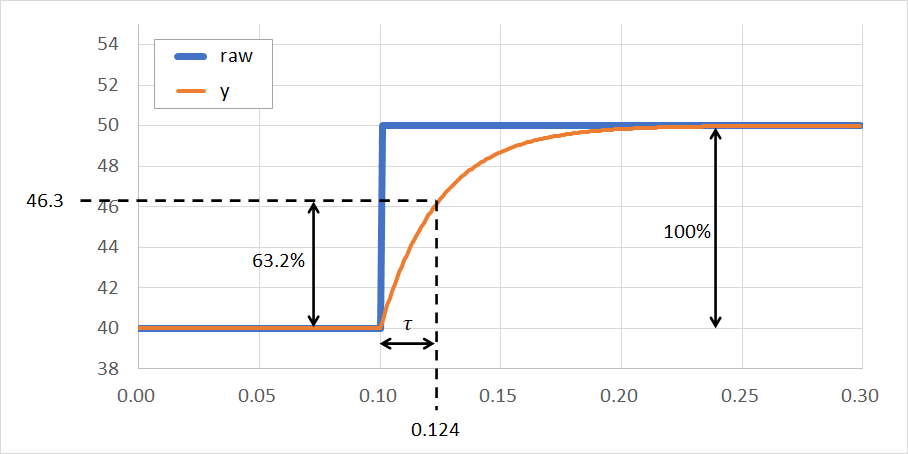
A common way to low pass filter:
void loop()
{
...
y += 0.04 * (raw - y);
...
}
Another way to write the same code:
y = 0.04 * raw + 0.96 * y;
Time constant is,

where dt is the execution interval and α is 0.04 in the above example.
Check with α = 0.04 and dt = 0.001 (τ = 0.024):
 Above confirms that
Above confirms that y reaches 63.2% of raw's changes in τ seconds.
First code can be rewritten so that constants have physical meanings:
// Function call frequency [Hz] // loop() is called every 1/LOOP_FREQUENCY seconds const double LOOP_FREQUENCY = 1000.0; // Low pass filter time constant [sec] // Increase for more filtering but slower response const double TIME_CONSTANT = 0.024; void loop() { ... y += (raw - y) / (LOOP_FREQUENCY * TIME_CONSTANT + 1.0); ... }
Now, if the loop needs to run at a different interval,
only LOOP_FREQUENCY needs to be changed.
Filter properties will stay unaffected.